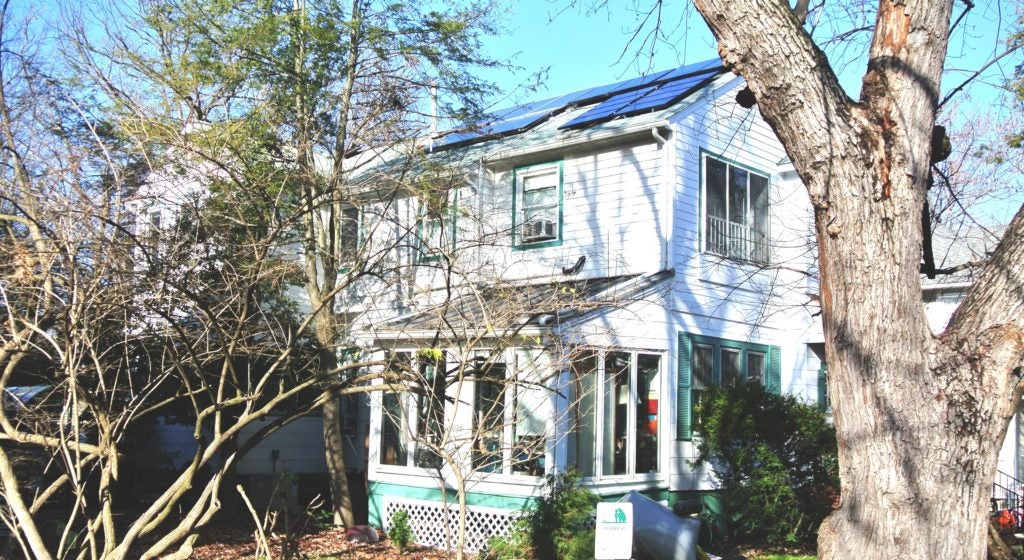Dominion’s support of Amazon’s renewable energy goals shows path for doing same with residential customers

Seventy percent of all data streamed through the internet is stored and processed at data centers in Virginia. While the region is host to many companies’ processing centers, the majority of this infrastructure belongs to one: Amazon. These data centers consume energy in a tremendously wasteful manner. Public concern convinced Amazon to pledge to source all of the electricity its data facilities use from renewable sources by 2020.
Amazon has worked closely with Dominion Power to help the company meet the goal. Their relationship should inspire residential customers to seek the same treatment from the utility.
Dominion offers its customers very little renewable energy. Only 4% of its electricity comes from wind and solar resources. The rest comes from natural gas, coal, and uranium. Amazon realized it could never meet its corporate renewable goal by purchasing Dominion’s fossil-fuel-based electricity. The company instead pursued power purchase agreements (PPAs) with private renewable energy developers in the regional wholesale electricity market. Last year, it entered into a PPA with Community Energy, Inc. to purchase the output of a new 80 MW solar farm in Accomack County.
By promising to meet nearly half of the energy needs of Amazon’s Northern Virginia data centers, the Accomack County Solar Farm PPA represented a positive step forward for Amazon’s sustainability goals. It also represented a harrowing loss of business for Dominion Power. Every watt of electricity that Amazon purchased from a private renewable developer was one less watt purchased from Dominion.
Recognizing the potential loss in retail sales from Amazon’s private wind and solar PPAs, Dominion has gone to great lengths to accommodate Amazon’s demand for renewable energy. Just months after Amazon announced its Accomack Solar Farm PPA, Dominion made an announcement of its own. The company had purchased the farm from the original developer and would sell the electricity directly to Amazon. The accommodations for Amazon didn’t stop there. Earlier this month, Dominion announced a new unprecedented Renewable Energy Agreement with Amazon to streamline the company’s renewable energy procurement.
In a never-before-seen move, Dominion has created a special retail rate for AWS to better match the wholesale market rate for renewable energy projects. Recognizing that wholesale market rates vary based on where electricity is produced, Dominion formulated its new rate to better reflect locational pricing. This will allow Dominion to source more renewable electricity for Amazon on the wholesale market while providing a more predictable billing cycle. In this billing cycle, Dominion retail rates vary in synchronicity with regional market prices.
The Virginia State Corporation Commission recently approved this rate structure and early analyses have applauded it as a win-win: Dominion retains business from Amazon; Amazon gets renewable energy at a steadier cost from Dominion. Many say Dominion has pioneered the way for future corporate customers to develop large-scale renewable energy portfolios.
Dominion’s willingness to work with Amazon to support the company’s renewable energy goals raises an important question. Why won’t the company act the same toward its residential customers?
Dominion forbids its customers from entering into power purchase agreements or taking part in community solar. It forces some residential customers to pay an arbitrary “stand by charge” to install solar. The company also supports an arbitrary and technically unsound limit on the amount of solar allowed on the electric grid.
For these reasons, hundreds of Virginians have signed the Virginia Declaration of Solar Rights. They are urging their legislators to ensure a fairer market for solar in Virginia.
